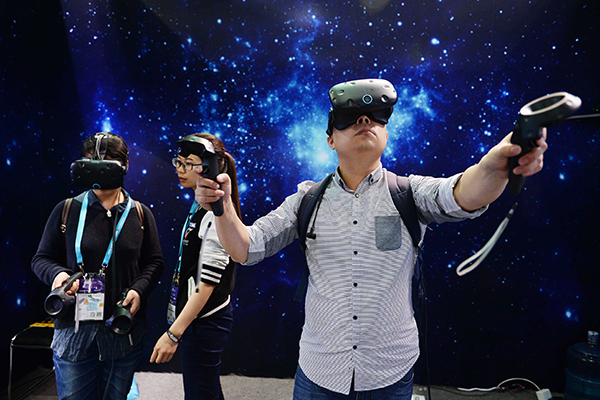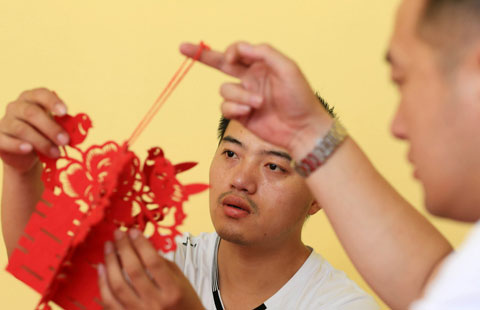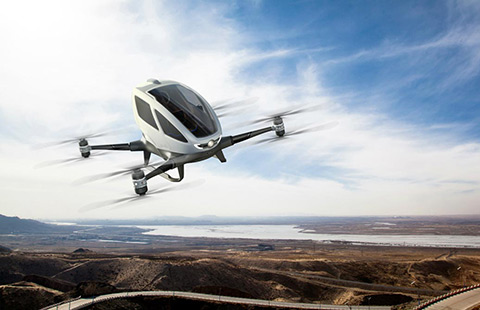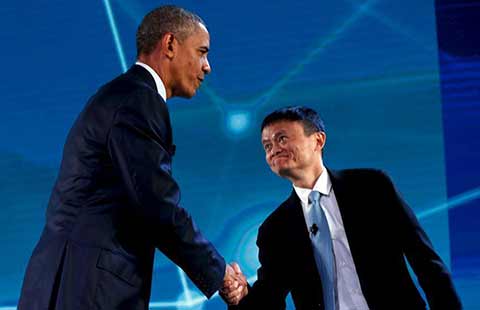VR expected to be more than just a gaming tool
By Wu Yiyao (China Daily) Updated: 2016-06-13 09:24
 |
|
A visitor plays VR games at the three-day Consumer Electronics Show Asia 2016 in Shanghai, which ends on Friday. The event showcases the latest VR products including headsets, glasses and accompanying content displayers. [Photo provided to China Daily] |
Industry experts noted that the retail sector could benefit from this technology by using it as a value-added service for customers. For example, a scented candles retailer has developed showrooms in which consumers can use a VR headset to gain an immersive experience with floral fragrances. Furniture and interior decoration retailers too can leverage VR technology to provide their potential buyers with accurate manifestations of designs.
"It costs about 80 percent less to build a VR showroom to present ceramic products to buyers than to create a showroom full of real ceramics. What's more, in a VR showroom, buyers can view hundreds of patterns of ceramics and they can tell which details they like the best and what alterations they wish to make," said Zheng Hong, sales representative with Lianbang Ceramics Ltd Group.
"In a traditional showroom, consumers need to move from one area to another and spend half a day seeing only a handful choices."
Real estate professionals also said that VR and augmented reality (AR) can help their industry. Joey Chio, Senior Associate Director of Savills China Retail Tenant Representation, added that the technology can also be used to deliver a realistic viewing experience to potential home tenants and buyers, as compared to having to imagine how a property would look like based on a sandbox model or blueprint.
"There will be many opportunities to create content for VR and AR when the hardware market for such tech is consolidated following the announcement of the industry standards and regulations. VR and AR will hardly be used solely for entertainment purposes," said Wang Qing, analyst with Shenzhen-based Buteng VR Ltd.
According to a new research report jointly released by the China Electronics Standardization Institute and Xinhua News Agency, the Chinese VR market was worth 1.54 billion yuan ($236 million) in 2015 and is expected to rise to more than 5 billion yuan in 2016.
Alfred Zhou, general manager of GfK China, a market research and consultancy services provider, estimated that 1.5 million sets of VR hardware will be sold in China in 2016.
- Young brothers take family business global
- Apple's Swift Playgrounds inspires Chinese programmers
- China to maintain growth in entertainment, media: report
- First China-Europe parallel imported vehicles cargo train arrives in Chongqing
- Morocco, China firm to build industrial park with $10b investment
- EIB president stresses positive collaboration with China
- China auto sales up 9.8% in May
- China Three Gorges to buy German wind park Meerwind from Blackstone


















